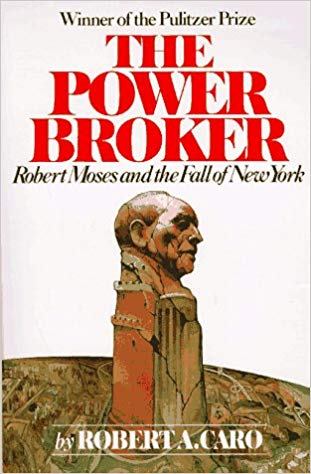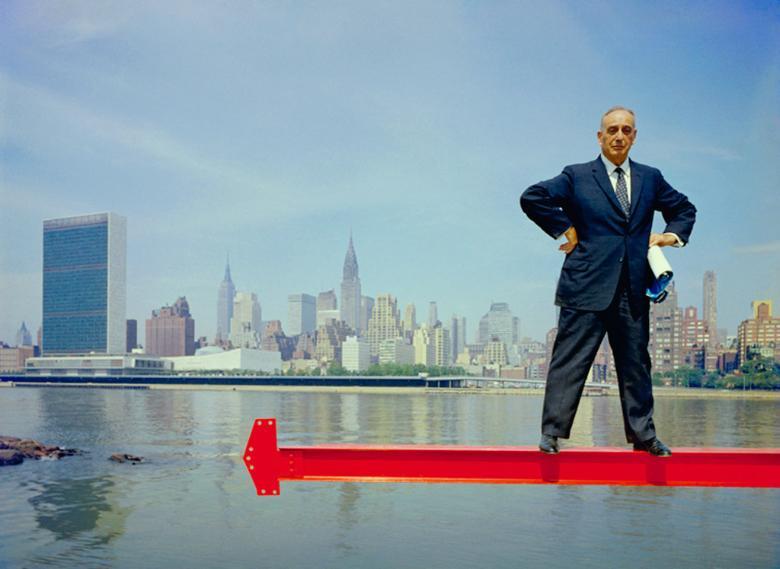
Chapter 5 – Age of Optimism
Moses’s first task was to challenge the dominance for Tammany Hall, and for that he had to control the city’s jobs – 50,000 City employees. Patronage was the lever of power in New York City, and by taking control of this lever, Moses sought to gain the power he needed to change the city.
Tammany resisted changes to the Civil service. Employment was currently managed by patronage and bribery and a maze of technicalities had been historically put in place to prevent change. The Mayor turned to Moses to handle these technicalities. However, Moses’s thesis was published, and his support of only educated gentlemen for positions in the Civil Service caused a scandal, and the offer was withdrawn.
Moses continued at the Bureau with more assistants. Moses’s first step was the measure of efficiency ratings for employees. In order to do this, each role had to be broken down into measurable parts. By 1915, Moses was ready to write his efficiency report. He was given a desk in the Municipal Building, his first foot in the City Hall door.
Robert married Mary in 1915 with a child in 1916. Although Moses’s mother pushed him to take a salary, Moses did not seem interested in money. He was more driven by his ideas for change and attaining the power to make them real.
Moses wrote that pay grades should be consistent across departments. The Civil Service should be structured into sixteen categories and promotion should be given purely on documented, mathematically verifiable merit. Moses was accused of downplaying the human element in this calculation but Moses had an almost religious belief in his mathematical models.
The first reactions to Moses’s ideas were positive. Mitchell announced that he would push for adoption. However, Tammany Hall was girding itself for a fight. Many of New York’s municipal employees would lose money due to Moses’s changes. At meetings, Moses would suffer a hail of abuse as he outlined his plans. Some of his supporters began to have doubts, especially those whose salary would be reduced. At the height of these doubts, Tammany Hall held a commission to consider the proposals. The decision was to modify the proposal, to consider individual cases and to slow down implementation. Different Civil Service levels were added by the City Alderman. By these methods, Tammany Hall successfully delayed the reforms.
Moses’s loss of optimism was mirrored by the country’s anxiety as it moved towards war. Mayor Mitchell popularity was also waning, not only with the public but with Moses as well as Mitchell had turned down Moses’s plans for Riverside Drive.
In 1917 Moses redoubled his efforts to push through his changes. Mitchell was up for re-election and was being contested heavily by Tammany Hall and their candidate, “Red” Mike Hyland, won. Progressivism was dead, as were Moses’s reforms. Science and logic were not enough. Moses needed power.
In 1918, Moses was looking for a job. He tried the shipbuilding industry, where he again proposed reforms which were rejected. He had to go back to the Bureau for a job with a diminished status.
His second daughter was born. Money was short and debts were rising. The apartment was too small and a larger one was out of the question. The war was over. Woodrow Wilson was fading. Tammany’s Mayor Al Smith was in charge in New York. Moses’s contacts were gone. He seemed to have nowhere to go. And then he received a phone call from Belle Moskowitz, Al Smith’s political advisor.
Analysis & Key Takeaways:
- Robert Moses was not motivated by money for the most part to Caro. This notion ends up being critical for evaluating what kind of lust for power, questionable ethics, vindictiveness and racism is exhibited by Moses’ practices.
- Money is an approximation of value for Moses; People who are motivated by material value (goods, money) are doomed to chase short-cuts to get more money (easy to see corruption). People who are motivated by abstract goods are more likely to achieve great amounts of influence through hard work (of course); so having cheap tastes and be impactful will ward off claims of corruption even if you’re value are to undermine the prospects of the poor to advance the interests of the wealthy as Caro makes clear in this book;
- Another example of the power of networks: Tammany Hall seems to have relied on a cultural group, Irish Catholics, to power a political block that gained disproportionate influence on the general public. These networks of influence aren’t explicit but show the underlying structure to be game-able by interest groups that aren’t explicit. As long as decisions are being made to advance the interest of the public, then there is no problem, right?
- Measuring the efficiency of employees is very subjective and yet also necessary: you do not want to be making hiring and firing decisions based on a gut feeling; you also do not want to be ‘building a case’ for people you just don’t like. Instead, you ought to try to establish key performance indicators so that the employee and the manager can determine whether they are heading in the right direction or if there is not a good fit; the data collected needs to be independent of any single person otherwise it is all about relationships which is the world that Robert Moses thrived in.


